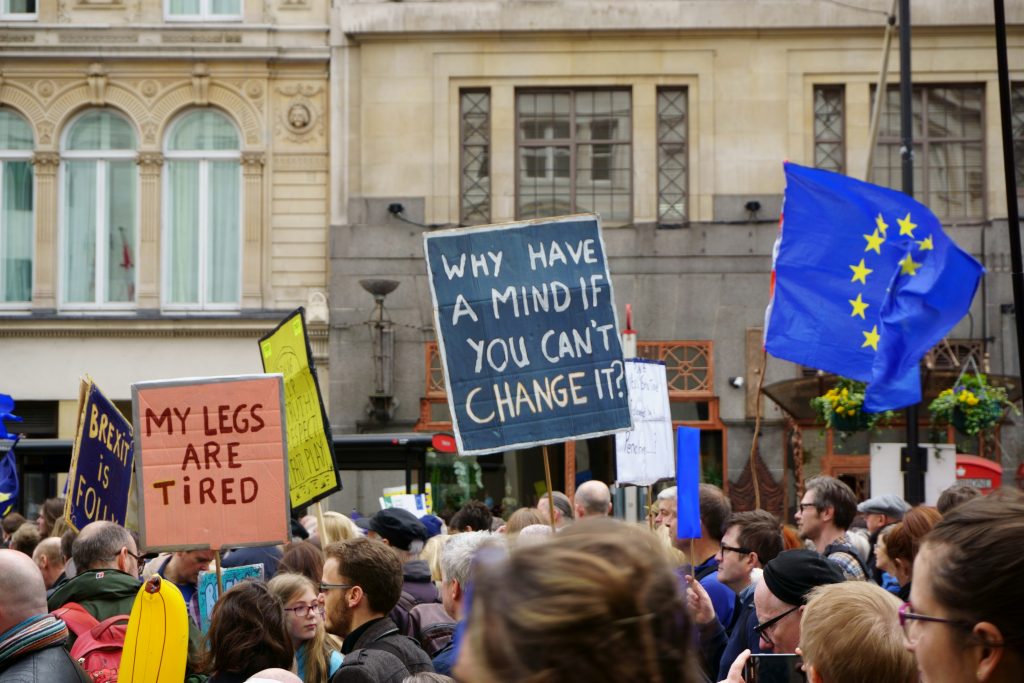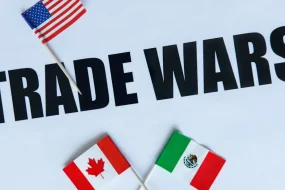In 2016, the United Kingdom shocked the world by voting to leave the European Union—a decision that came to be known as Brexit. After years of negotiations, debates, and uncertainty, Brexit finally became a reality on January 31, 2020. Since then, the UK has embarked on a journey of self-discovery, redefining its place in the global landscape. But as the dust settles, the question remains: Is the UK now stable after Brexit, or are there still challenges ahead?
At first glance, the UK appears to have weathered the storm of Brexit relatively well. The feared economic collapse did not materialize, and the country has managed to strike trade deals with several nations, including the EU itself. The vaccine rollout during the COVID-19 pandemic showcased the UK’s ability to act independently and efficiently in crucial matters. These successes have led some to declare that the UK is now on solid ground post-Brexit.
As one of the supporters of Brexit, Nigel Farage (Brexit Party, formerly UKIP), who has been a vocal advocate for Brexit for decades, leading the UK Independence Party (UKIP) and later founding the Brexit Party, has insisted that leaving the EU would enable the UK to take back control of its borders, reduce immigration, and regain sovereignty. Farage has been critical of what he sees as the EU’s bureaucratic inefficiency and undemocratic governance.
However, beneath the surface, significant challenges persist. One of the most pressing issues is the Northern Ireland Protocol, which governs trade between Northern Ireland and the rest of the UK. The protocol was designed to prevent a hard border on the island of Ireland but has led to disruptions in trade and tensions within Northern Ireland. Resolving these issues while maintaining peace and stability in the region remains a delicate balancing act for policymakers.
Another area of concern is the UK’s relationship with the EU. While a trade deal was reached at the eleventh hour, the relationship between the two sides remains strained. Disputes over issues such as fishing rights and regulatory divergence continue to simmer, threatening to escalate into full-blown conflicts. The specter of further negotiations looms large, as both sides seek to protect their interests while avoiding a return to the acrimony of the past.

The economic impact of Brexit is also far from settled. While the immediate shock may have been less severe than anticipated, the long-term effects remain uncertain. The UK’s service-based economy faces particular challenges as access to the EU market becomes more complicated and barriers to trade increase. Businesses are grappling with new customs procedures, regulatory requirements, and changes to immigration laws, all of which could have far-reaching implications for the UK’s economic future.
Furthermore, Brexit has reignited debates about the UK’s identity and place in the world. For many Brexit supporters, leaving the EU was about reclaiming sovereignty and asserting British independence. However, others worry that Brexit has isolated the UK and diminished its influence on the global stage. The decision to leave the EU has forced the UK to redefine its relationships with other countries and adapt to a rapidly changing geopolitical landscape. Keir Starmer (Labour Party), the party’s leader, has focused on holding the government to account during the Brexit negotiations. He has criticized the government’s handling of Brexit and called for closer alignment with the EU on issues such as trade and regulatory standards.

In the realm of immigration and citizenship, Brexit has raised numerous questions and concerns. The end of free movement has significant implications for EU citizens living in the UK, and vice versa. While provisions have been made to protect the rights of EU citizens already residing in the UK, the long-term impact on immigration patterns and demographic trends remains to be seen. Moreover, the UK now faces the challenge of designing a new immigration system that balances the need for skilled workers with concerns about immigration levels. They emphasized the need to come together as a country regardless of political differences, urging politicians and the public to work towards a constructive and inclusive vision for the future, one that addressed the concerns of all citizens and promoted social cohesion.
In the end, while the UK has made progress in navigating the post-Brexit landscape, significant challenges remain. The Northern Ireland Protocol, the UK’s relationship with the EU, the economic impact of Brexit, questions of identity and influence, and immigration policy are just a few of the issues that demand attention. The road ahead may be rocky, but with pragmatism, cooperation, and a willingness to compromise, the UK can overcome these challenges and emerge stronger on the other side. Brexit may have been a seismic shift, but it is only the beginning of a new chapter in the UK’s history.












